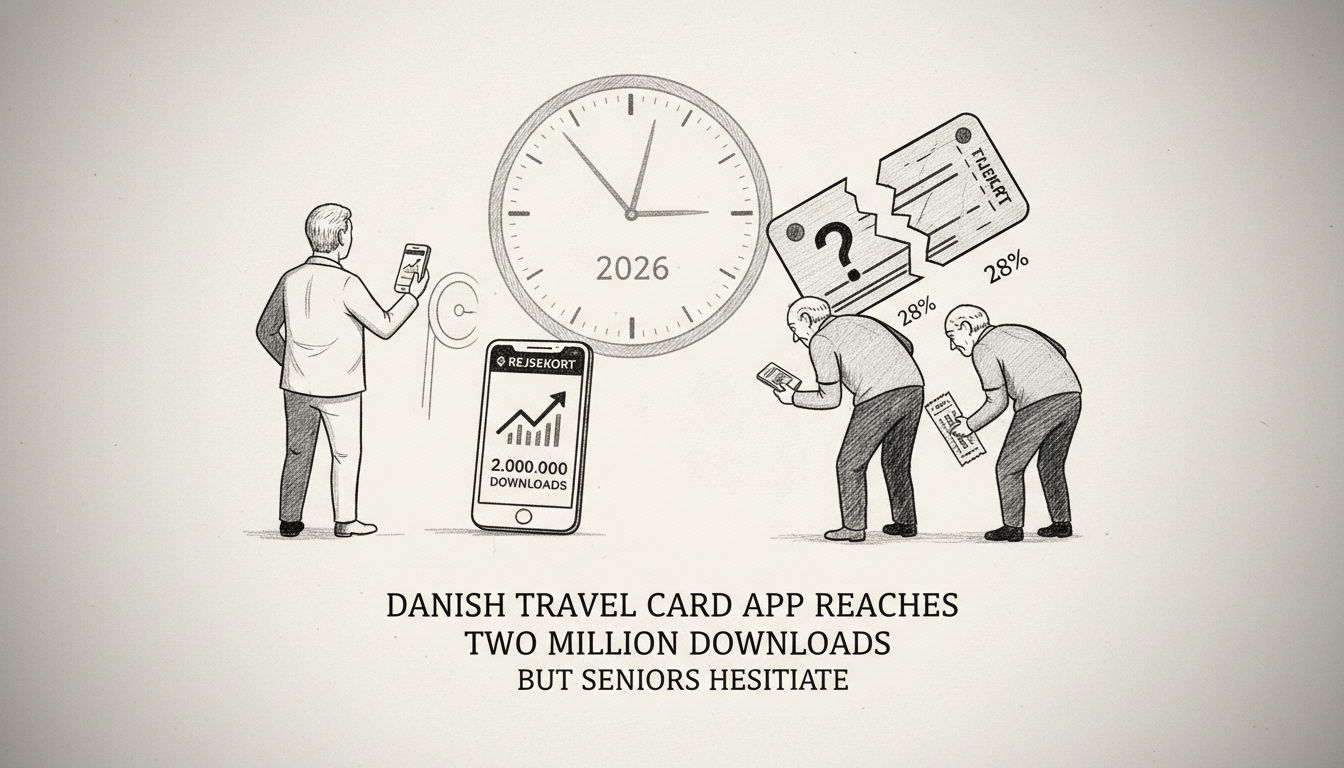Denmark's digital travel card system has passed a major milestone with its mobile app approaching two million downloads. Between 4,000 and 6,000 Danes download the Rejsekort app daily as the country transitions from physical travel cards to digital solutions.
The adoption patterns reveal a generational divide. Customers aged 26 to 66 have embraced the digital transition equally between physical and digital cards. However, only 28 percent of pensioners over 67 use the digital version while 70 percent remain loyal to physical cards.
The customer director for Rejsekort explained the adoption trends. He said initial uptake was rapid among early adopters before settling into steady daily downloads. Recent acceleration came from announcing the phase-out of physical cards scheduled for completion during 2026.
Users typically switch when they experience the physical card's limitations or need to top up funds knowing the physical system has only six months remaining. Currently, about 2.4 million personalized physical cards and one million anonymous cards exist in Denmark. The company estimates 2.7 million active cards total and aims to convert 90 percent of users to digital platforms.
The digital travel card offers several advantages over physical counterparts. The app automatically detects user location and enables check-in via simple swiping gestures on buses, trains, and metro systems. Unlike physical cards requiring specific check-in stations and repeated check-ins when switching transport modes, the digital version handles transitions smoothly.
Additional features include automatic check-out if users forget after leaving public transport. The company has addressed privacy concerns by reducing data retention from three years to two months, though they maintain sufficient tracking to resolve payment disputes.
Battery anxiety remains a significant concern among users. Officials confirm that passengers face fines of 750 to 1,000 Danish kroner if their phone loses power during travel, though research shows fear exceeds actual occurrence rates.
The rollout has progressed in stages, recently expanding to include disabled passengers who require special pricing arrangements. Once physical card phase-out completes, a basic card option will remain for app-resistant customers, requiring new station equipment that allows both check-in and check-out at the same terminal.
The 400 million kroner development budget is shared among Denmark's eight transport companies. The unified app replaces individual company apps except for DSB, which maintains its own application for loyalty programs.
Future development may include direct payment card integration similar to London's system. New terminals already support payment card technology, positioning the system to potentially accept credit cards directly. This solution particularly targets tourists who might choose between ride-sharing services and public transport based on payment convenience.
The digital transition represents Denmark's broader push toward streamlined public services. As physical infrastructure reduces, the system adapts to changing user behaviors while maintaining accessibility across generations. The challenge remains balancing technological progress with inclusive design that serves all demographic groups.

